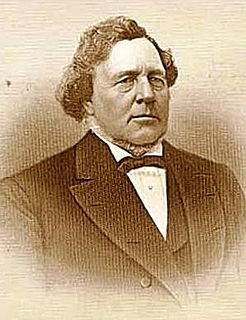A Quote by Agnes Repplier
abroad it is our habit to regard all other travelers in the light of personal and unpardonable grievances. They are intruders into our chosen realms of pleasure, they jar upon our sensibilities, they lessen our meager share of comforts, they are everywhere in our way, they are always an unnecessary feature in the landscape.
Related Quotes
The aggressive incoherence of our common surroundings can be described as entropy made visible. The way we have disposed things on the landscape leads us in the direction of disorder and death. They are categorically evil. These dispositions are destroying our only home-planet and other organisms that share it. They defeat our need to care about where we are and the things in place there. They prompt us to feel that civilization is not worth carrying on. They rob us of our identity and our will to live. These things are not about personal taste or style.
Other relaxations are peculiar to certain times, places and stages of life, but the study of letters is the nourishment of our youth, and the joy of our old age. They throw an additional splendor on prosperity, and are the resource and consolation of adversity; they delight at home, and are no embarrassment abroad; in short, they are company to us at night, our fellow travelers on a journey, and attendants in our rural recesses.
Most people would say they live with an internal angst that they can't always put their finger on. This is because the Internet has changed our very way of being in this world, compelling us to be perpetually "on" - from our cars to our computers, our tablets to our smartphones, our desks to our living rooms or dining tables, our churches to our libraries to our schools.
We've sweated and torn out our hair trying to reconstruct our chosen lives, to fashion them like literary sculptures, at once monumental and yet human. We've applied all of our intelligence, our empathy, our critical faculties, our compassion - and we think, in our delusion, that it's still 1960, and our work is going to get noticed.
More than anything else, kindness is a way of life. It is a way of living and walking through life. It is a way of dealing with all that is-our selves, our bodies, our dreams and goals, our neighbors, our competitors, our enemies, our air, our earth, our animals, our space, our time, and our very consciousness. Do we treat all creation with kindness? Isn't all creation holy and divine?
Lord, protect our decisions, because making Decision is a way of praying. Give us the courage after our doubts, to be able to choose between one road and another. May our YES always be a YES and our NO always be a NO. Once we have chosen our road, may we never look back nor allow our soul to be eaten away by remorse. And in order for this to be possible.






































